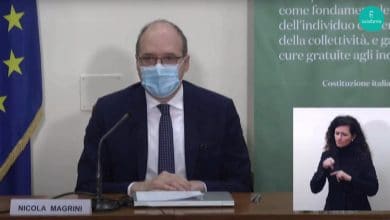
 The system of ceilings that has governed spending for years needs to be rethought pharmaceutical of the NHS. And the first step could be to no longer quantify the pharmaceutical budget as a fixed proportion of overall health expenditure. It is one of the considerations that come from the 2015 Oasi Report, the publication with which every year the Cergas research center of Bocconi takes a picture of the changes underway in Italian healthcare.
The system of ceilings that has governed spending for years needs to be rethought pharmaceutical of the NHS. And the first step could be to no longer quantify the pharmaceutical budget as a fixed proportion of overall health expenditure. It is one of the considerations that come from the 2015 Oasi Report, the publication with which every year the Cergas research center of Bocconi takes a picture of the changes underway in Italian healthcare.
The scenario that emerges is not the brightest: between 2009 and 2014 public health expenditure increased by an average of 0.7% per year, when in the five-year period 2003-2008 it grew by approximately 6%. "This tough economic-financial scenario" observe the Cergas experts "has not prevented the NHS from consolidating its balance sheet, now in its third year". In other words, the NHS has been able in recent years to discourage any possible increase in spending through the use of centrally planned budgets and then translated under the strict control of the individual regions, encouraged by automatic increases in tax rates in the event of a deficit.
In this severe policy of containment, Cergas observes again, the interventions were thus concentrated not so much on the fight against waste, as it is apparently customary to repeat; on the other hand, there was a cut mainly on that part of public health expenditure – around 35% – which is used «for the purchase of services from accredited or affiliated subjects». Among these, the pharmaceutical expenditure with an agreement, which compared to 2013 decreased by 2.9% while the expenditure for personnel remains substantially unchanged (-0.8%), that for goods and services grew by 3.4% and that for «other assistance with an agreement » rises to 1.7%.
 It is evident, therefore, that it arises for the NHS an increasingly strong problem of "sustainability", to solve which Cergas proposes a ten-point manifesto to politicians and administrators. Among others, there are "the redesign of services to redefine hospital and territorial production processes, in line with a more diversified and complex demand for health", the integration of private healthcare consumption into the NHS, new guidelines in personnel management. And above all, as anticipated, there is the proposal to «rethink the system of caps on pharmaceutical expenditure», perhaps overcoming «the connection to the overall resources of the NHS. Although reassuring with respect to the need to govern expenditure, in fact, the current system "does not allow for the therapeutic value and the effects that a drug has on other healthcare services to be incorporated into the negotiation of prices and reimbursements", i.e. "the avoided costs ». Which translated means: with the mechanism of expenditure ceilings, the NHS risks not being able to reimburse new drugs which over time will reduce the cost of hospitalizations, hospitalizations or complications.
It is evident, therefore, that it arises for the NHS an increasingly strong problem of "sustainability", to solve which Cergas proposes a ten-point manifesto to politicians and administrators. Among others, there are "the redesign of services to redefine hospital and territorial production processes, in line with a more diversified and complex demand for health", the integration of private healthcare consumption into the NHS, new guidelines in personnel management. And above all, as anticipated, there is the proposal to «rethink the system of caps on pharmaceutical expenditure», perhaps overcoming «the connection to the overall resources of the NHS. Although reassuring with respect to the need to govern expenditure, in fact, the current system "does not allow for the therapeutic value and the effects that a drug has on other healthcare services to be incorporated into the negotiation of prices and reimbursements", i.e. "the avoided costs ». Which translated means: with the mechanism of expenditure ceilings, the NHS risks not being able to reimburse new drugs which over time will reduce the cost of hospitalizations, hospitalizations or complications.




